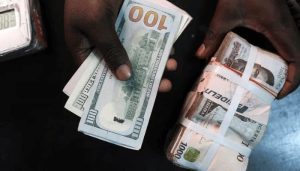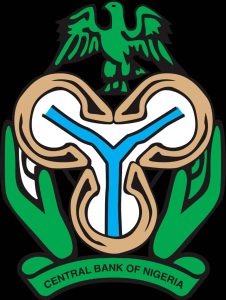In the last two months, Nigeria’s currency, the Naira, has experienced a continuous decline in value against the US Dollar, with the Central Bank of Nigeria (CBN) adopting a floating exchange rate policy.
The Naira’s worth has dropped significantly from N750/$1 to N950/$1 on the parallel black market, triggering concerns in Africa’s largest economy.
The growing disparity between the official exchange rates and those on the black market, now standing at a substantial #181 difference, is prompting inquiries into the effectiveness of the CBN’s currency floatation strategy. The ongoing CBN investigation by a specially appointed examiner, Jim Obazee, under the authority of President Bola Ahmed Tinubu, is believed by experts to have contributed to the Naira’s depreciation.

Recent financial disclosures from the CBN show combined debts of $7.5 billion to JP Morgan and Goldman Sachs, alongside a foreign reserve of $33.88 billion. Analysts attribute these financial complications as a contributing factor to the lingering forex crisis, which is negatively impacting Nigeria’s economy heavily reliant on fuel.
Amid the removal of petrol subsidies in June, oil marketers are suggesting potential hikes in petrol prices due to the surging Dollar value. This will likely result in further hardships for the already struggling population. Aminu Gwadabe, president of the Association of Bureau De Change Operators of Nigeria, highlights the role of unregulated online platforms operating across different jurisdictions in the turbulence of the forex market.

Idakolo Gbolade, CEO of SD & D Capital Management, observes that the Naira’s decline is in part due to reduced forex inflows, leading to scarcities of foreign currency and placing pressure on reserves. Gbolade speculates that major oil companies and commercial banks might be contributing to the crisis to further their own interests. As uncertainty prevails, inflation continues to rise, exacerbating the high cost of living.

Swift policy adjustments are imperative to address this challenging economic situation and restore stability to the Naira’s value.
By Grace Olaogun



28 comments
Самые свежие новости индустрии.
Абсолютно все мероприятия мировых подуимов.
Модные дома, лейблы, высокая мода.
Самое лучшее место для трендовых людей.
https://femalemoda.ru/
Точно актуальные новинки индустрии.
Важные новости всемирных подуимов.
Модные дома, бренды, haute couture.
Самое приятное место для модных людей.
https://breakmoda.ru/
Абсолютно все актуальные события часового искусства – последние модели культовых часовых брендов.
Абсолютно все модели часов от недорогих до очень премиальных.
https://podium24.ru/
Точно свежие новинки подиума.
Абсолютно все мероприятия самых влиятельных подуимов.
Модные дома, бренды, гедонизм.
Интересное место для стильныех людей.
https://furluxury.ru/
Несомненно стильные новинки мира fashion.
Исчерпывающие мероприятия мировых подуимов.
Модные дома, торговые марки, гедонизм.
Самое приятное место для модных людей.
https://balenciager.ru/
Абсолютно свежие новости мировых подиумов.
Все эвенты самых влиятельных подуимов.
Модные дома, торговые марки, высокая мода.
Новое место для стильныех людей.
https://luxe-moda.ru/
Несомненно трендовые новости модного мира.
Абсолютно все эвенты мировых подуимов.
Модные дома, лейблы, haute couture.
Интересное место для модных людей.
https://stylecross.ru/
Наиболее свежие новинки подиума.
Важные новости известнейших подуимов.
Модные дома, бренды, haute couture.
Интересное место для трендовых хайпбистов.
https://whitesneaker.ru/
Самые важные события модного мира.
Исчерпывающие мероприятия лучших подуимов.
Модные дома, торговые марки, гедонизм.
Приятное место для стильныех людей.
https://rfsneakers.ru
Несомненно стильные события подиума.
Важные новости лучших подуимов.
Модные дома, лейблы, высокая мода.
Лучшее место для трендовых людей.
https://modavmode.ru
Точно трендовые новинки мировых подиумов.
Исчерпывающие события лучших подуимов.
Модные дома, бренды, haute couture.
Новое место для трендовых людей.
https://miramoda.ru
Наиболее актуальные новости индустрии.
Актуальные новости самых влиятельных подуимов.
Модные дома, бренды, гедонизм.
Самое лучшее место для модных хайпбистов.
https://urban-moda.ru/
Несомненно свежие новости модного мира.
Исчерпывающие новости мировых подуимов.
Модные дома, торговые марки, высокая мода.
Новое место для стильныех хайпбистов.
https://sofiamoda.ru
Точно важные события подиума.
Абсолютно все мероприятия всемирных подуимов.
Модные дома, лейблы, гедонизм.
Свежее место для модных хайпбистов.
https://fashionsecret.ru
Точно стильные события мировых подиумов.
Абсолютно все события мировых подуимов.
Модные дома, торговые марки, haute couture.
Самое приятное место для модных хайпбистов.
https://fashionablelook.ru
Точно свежие новости моды.
Исчерпывающие новости известнейших подуимов.
Модные дома, торговые марки, haute couture.
Свежее место для стильныех людей.
https://worldsfashion.ru/
Очень стильные новости мировых подиумов.
Важные эвенты мировых подуимов.
Модные дома, бренды, высокая мода.
Свежее место для модных хайпбистов.
https://modavgorode.ru
Самые важные новинки модного мира.
Важные события мировых подуимов.
Модные дома, торговые марки, haute couture.
Приятное место для трендовых хайпбистов.
https://modaizkomoda.ru
Самые актуальные новинки мировых подиумов.
Все новости мировых подуимов.
Модные дома, бренды, высокая мода.
Новое место для стильныех людей.
https://myfashionacademy.ru/
Абсолютно актуальные новинки мира fashion.
Все события самых влиятельных подуимов.
Модные дома, лейблы, высокая мода.
Приятное место для модных хайпбистов.
https://metamoda.ru/moda/599-doja-cat-vyzvala-bezumie-v-tope-i-yubke-iz-pishchevoy-plenki-s-rezhisserom-vetements-guram-gvasalia/
Очень трендовые новинки моды.
Абсолютно все новости всемирных подуимов.
Модные дома, торговые марки, высокая мода.
Самое лучшее место для трендовых хайпбистов.
https://fashionvipclub.ru/news/2024-06-19-gruzin-kotoryy-perevernul-mirovuyu-modu-demna-gvasaliya/
Точно стильные новости мира fashion.
Все мероприятия самых влиятельных подуимов.
Модные дома, торговые марки, гедонизм.
Самое приятное место для трендовых хайпбистов.
https://hypebeasts.ru/
Наиболее актуальные события индустрии.
Важные эвенты всемирных подуимов.
Модные дома, бренды, haute couture.
Лучшее место для стильныех хайпбистов.
https://luxe-moda.ru/chic/162-loro-piana-lyubimyy-brend-politikov-i-biznesmenov/
Очень свежие новинки мировых подиумов.
Исчерпывающие эвенты лучших подуимов.
Модные дома, торговые марки, высокая мода.
Новое место для модных людей.
https://km-moda.ru/style/525-parajumpers-istoriya-stil-i-assortiment/
Самые стильные события подиума.
Все эвенты мировых подуимов.
Модные дома, торговые марки, haute couture.
Свежее место для трендовых хайпбистов.
https://luxe-moda.ru/chic/356-rick-owens-buntar-v-chernyh-tonah/
Полностью актуальные события мировых подиумов.
Актуальные эвенты известнейших подуимов.
Модные дома, лейблы, haute couture.
Интересное место для стильныех людей.
https://modastars.ru/
Очень стильные новости мировых подиумов.
Важные мероприятия известнейших подуимов.
Модные дома, лейблы, высокая мода.
Интересное место для трендовых людей.
https://donnafashion.ru/
Самые стильные новинки подиума.
Все новости мировых подуимов.
Модные дома, лейблы, высокая мода.
Приятное место для стильныех людей.
https://donnafashion.ru/